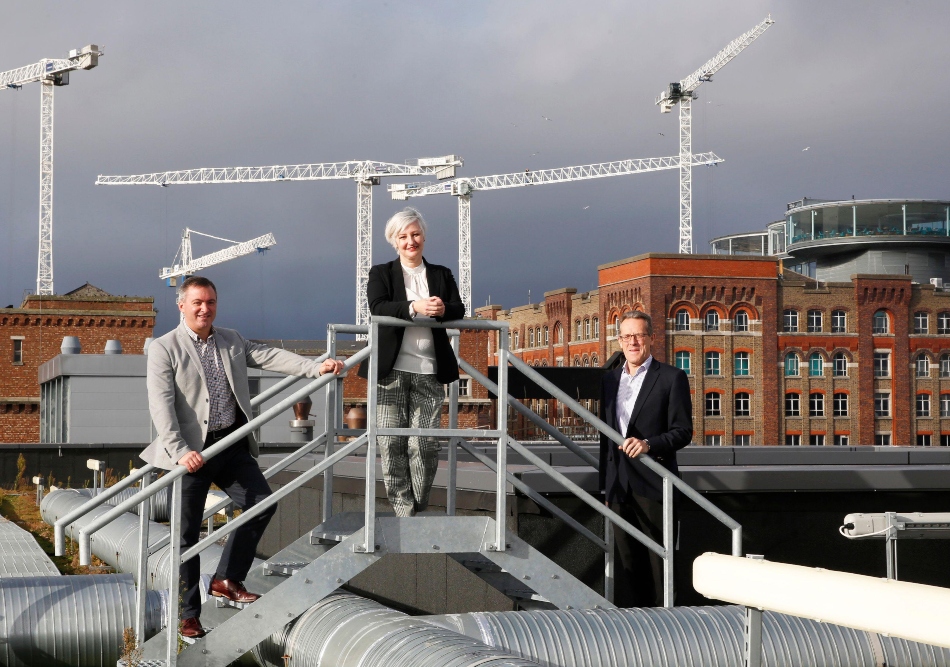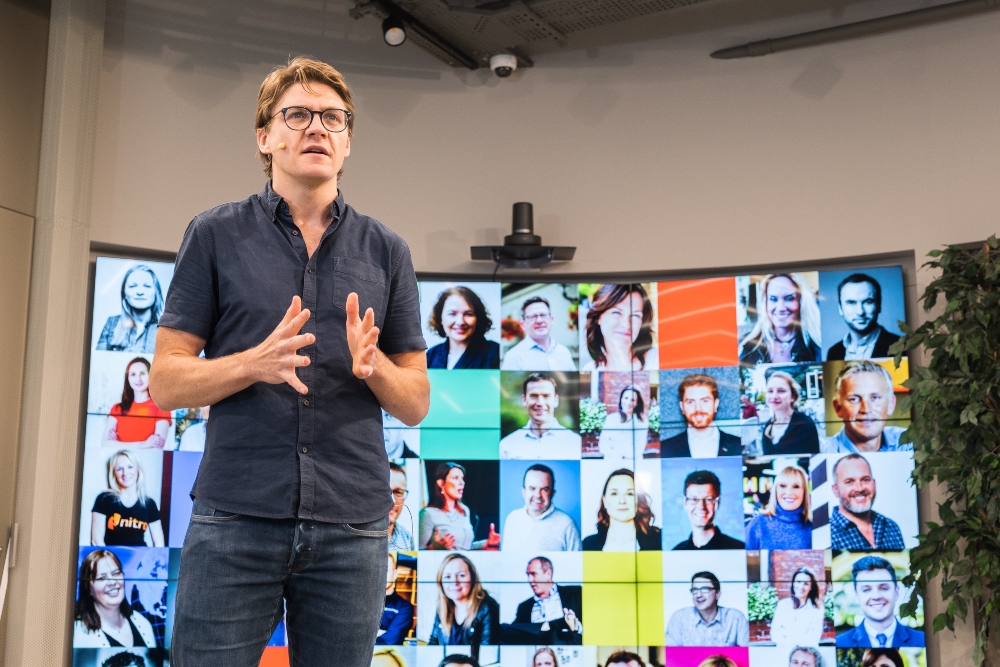Podcast Ep 88: GEC manager Eamonn Sayers reveals how ambitions are at play to make the Guinness Enterprise Centre Dublin’s answer to France’s Station F.
In recent weeks Guinness Enterprise Centre (GEC) in Dublin’s Liberties district revealed the finished work on a €10m investment that saw the operation expand by 100,000 sq ft. The campus projects 3,000 new jobs led by entrepreneurs in the next five years.
A further €1m phase 2 was announced with work commencing immediately. GEC said that due to strong demand, it has already committed 80pc of its additional capacity to start-ups and expects to be at full capacity by early 2022.
“We see the GEC as Ireland’s home for rural companies. We’re close to Heuston Station, which really helps to facilitate that. So there are a lot of companies around Ireland that are using the GEC as their Dublin location when they’re in Dublin”
The 3,000 targeted jobs will include 1,500 direct jobs and 1,500 indirect jobs. The additional jobs will bring the total number of direct jobs supported by the GEC to 5,000 by 2026.
The manager of GEC Eamonn Sayers explained that the GEC was set up in the late 1990s to help provide employment in one of the poorest parts of Dublin. “It was the coming together between private and public industry, Enterprise Ireland, Dublin City Council and Dublin Local Enterprise Office. And the initial hope was that it was going to generate 200 jobs. Little did they know that within 10 years more than 1,000 jobs were created. Our latest expansion will allow 900 entrepreneurs to be based here on an annual basis. It has been a really interesting journey, to say the least.”
Town and country
GEC, Sayers explained, operates like a finely oiled machine. “When a company comes in, we will help them with their business plan, market strategy, get them investor-ready and put them in front of investors. Probably the most important thing we do is create the right environment for them to attract talent to their teams and for them to build the companies and most importantly the culture around their company.”
Sayers said that usually after around three years companies would naturally move on from the GEC to their own offices. “More and more in the last five or six years in particular we’ve managed to keep a lot of these companies in the Dublin area, which is really helping to support not just the area but helping us all as a community to grow and scale from a start-up centre in Dublin.”

From left: Eamonn Sayers, GEC manager; Linda Mooney, GEC operations manager; and David Varian, GEC chair.
The ambitions Sayers and his colleagues have for the GEC are to put it on the global map. “What we’ve created here is a global entrepreneurial super hub – Ireland’s equivalent to Station F in Paris – by interconnecting between government, business, people and academia. A quadruple helix of innovation. We’ve become the physical embodiment of that ambition.
“What we want to do is create brilliant entrepreneurs taking them to 10 employees, 100 employees or more. That’s part of their journey and we want to be able to help them along the journey and it’s a privilege to work with these entrepreneurs.”
The recent news of the impending closure of its Digital Hub neighbour in the Liberties, albeit with an extension in place for client companies until 2025, doesn’t distract from the GEC’s ambition to help drive wealth at a national level.
“The Digital Hub has been fantastic for companies and I’m delighted to see they are being extended until 2025. Our role is to drive on a national level, economic wealth. So that’s going to be our focus in the weeks and months ahead, creating the right environment to help entrepreneurs physically here but also through our regional programme to help entrepreneurs across the country.”
GEC, Sayers explained, has partnered with more than 50 digital hubs across Ireland as well as fostering a university programme whereby it has partnered with some of the best business schools in the world. “Our entrepreneurs are working directly with MBAs on helping them solve their challenges and we extend that to our partner hubs across the country. And we want to deliver more of this. With the new expansion we are going to have more people coming in to extend our own network. It’s all focused around how we can help drive innovation in Ireland and create brilliant entrepreneurs.”
Sayers said that the vision transcends a single physical place in Dublin to creating a national ecosystem where start-ups can thrive, especially in their own parish. “Look, I’m a Kerryman. We want companies to scale from where they start. For companies that are based in Dublin, we want them to be potentially looking at creating second sites around the country. We see the GEC as Ireland’s home for rural companies. We’re close to Heuston Station, which really helps to facilitate that. So there are a lot of companies around Ireland that are using the GEC as their Dublin location when they’re in Dublin.”
For Sayers, Ireland is too small to be divided into regions and hubs driving their own separate agendas. The purpose of the GEC is to create the bedrock for a nationwide ecosystem and a home away from home for regional hubs and their respective communities of entrepreneurs.
The message is clear, start-ups in Ireland can thrive from where they are from and not lack any of the advantages of their Dublin counterparts.
“Our message to rural start-ups is they can access every resource there is in Dublin without having to leave where they’re from. For example, we’re partnered with HQ Tralee, we’re partnered with the Tom Crean Centre and we’re partners with the Cavan Digital Hub and we’ve been helping them and they’ve been helping us in relation to how we do our business and help our entrepreneurs.”
The imperative, Sayers concluded, is the entrepreneur. “We need to examine what we define as success. Often people look at the headline grabbers like the amount of jobs being generated. But we often tend to overlook the entrepreneur who’s quietly working away, building a team of six or 10 people. These jobs are feeding families, providing more money into communities and maybe their involved in sports clubs. And we need more of these. Do we want more unicorns? Of course we do. But let’s get great companies and great entrepreneurs and have a great ecosystem. And I think from that we’d end up with our own versions of unicorns.”
-
Bank of Ireland is welcoming new customers every day – funding investments, working capital and expansions across multiple sectors. To learn more, click here
-
Listen to the ThinkBusiness Podcast for business insights and inspiration. All episodes are here. You can also listen to the Podcast on:
-
Spotify
-
SoundCloud
-
Apple



